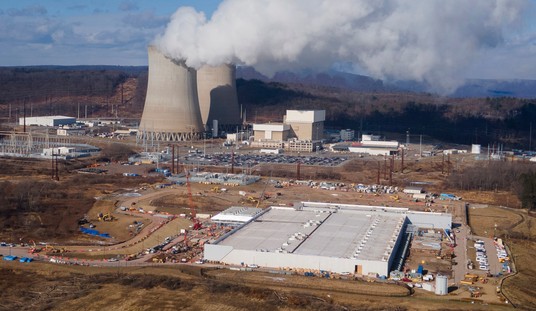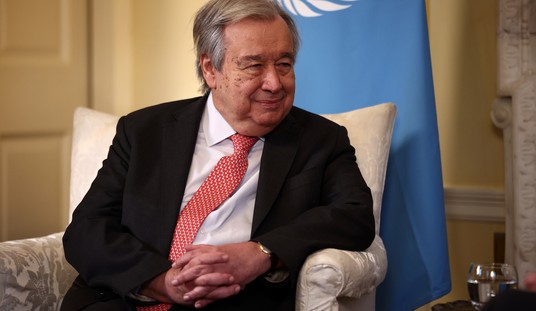A Twitter pal reminds me that John McLaughlin, the pollster who wrote the memo featured in Trump’s tweets below, was also hired by the campaign in June 2016 to help Trump develop a strategy to win, ah, New York State. So.
“Trump is malignantly crazy about the bad poll numbers,” said a former White House official to Vanity Fair, quoted in a story that went live coincidentally right around the same time as these tweets. “He’s going to broom Kushner and [Brad] Parscale—the numbers are not getting better.” It’s not the public polling that’s bugging him, I’m sure, as he’s beaten expectations on those before. It’s the fact that his internal polling, the sort conducted by McLaughlin, is reportedly “brutal” lately. A few days ago the Times reported this tragicomic detail: “At times, his allies have taken unusual steps to try to calm his frustration, including commissioning and then leaking a poll last month that suggested that Mr. Trump had gained ground rapidly on Mr. Biden, people familiar with the efforts said, even as other Republican and nonpartisan polling showed the president’s numbers stagnant.”
He knows he’s losing right now. People whom he trusts are telling him so. He just doesn’t like you knowing it.
https://twitter.com/realDonaldTrump/status/1270071794628726784
No one’s suppressing anything by running a “suppression poll” five months out from the election. We’ll travel through 5,000 news cycles between now and the election, many of them (hopefully) with encouraging economic news, before voters start making up their minds. If a pollster wanted to purposely discourage them he’d do it a few days before Election Day, not at a moment when they’re barely paying attention to the campaign.
McLaughlin’s analysis reads a lot like the “Unskewed Polls” site that became popular with righties before Election Day 2012, when voters went out and proved that the polls weren’t actually skewed. Some of what he says is obviously true and well-known to poll-followers, e.g., Trump is certainly doing better in battleground states and in polls of likely voters than he is in national polling of adults. All national polls really give us is a bird’s-eye view of how the electorate is trending generally. But McLaughlin is playing games by reassuring Trump that CNN’s poll is necessarily skewed if the share of Republicans in the sample is lower than the share of Republicans (33 percent) who turned out in 2016. There’s no reason to believe there’ll be as many Republicans — or Democrats — at the polls this fall than there were four years ago. Turnout levels can and do change.
As importantly, there’s no reason to believe that everyone who was a Republican — or a Democrat — in 2016 is still one today. In fact, CNN’s poll also includes fewer self-identified Dems (32 percent) in their sample than the exit polls in 2016 did (36 percent). The biggest group in today’s sample is self-identified independents. But some of those independents will begin to choose sides as the campaign wears on and eventually identify as Dems or Republicans by November; some of them may also be former Republicans who quit the GOP because they were tired of Trump and aren’t coming back. (When the president reminds people that he has near-unanimous approval among Republicans, one reason for that is that some Never Trumpers left to become indies.) Point being, the make-up of the electorate in 2016 doesn’t tell us much about party ID today. Especially at a moment when there’s enormous political upheaval — massive economic pain, a pandemic, gigantic public rallies against police brutality.
Trump and McLaughlin are entitled to call the CNN poll what is, an outlier. At 55/41, CNN has Biden leading by twice as many points as most other pollsters do. (Although a Monmouth poll taken last week had him up 11.) If you want to know what the race looks like right now, skip CNN and skim through the latest polls aggregated at RCP. You’ll notice two things. First, Biden’s lead has gotten meaningfully bigger over the last 10 days, from 5.3 points on May 30 to 7.8 points now. There’s been a correlated downturn in Trump’s approval rating over the same period as well:
Trump's approval rating generally doesn't move much, so this is really one of the steeper shifts we've seen, even though it's only a couple of points.https://t.co/Vfmzd6B2ps pic.twitter.com/Nl63Hj4wcr
— Nate Silver (@NateSilver538) June 8, 2020
The other thing you notice in the RCP data is that Biden is notching 50 percent or better regularly now (five of the last 10 polls), which is dangerous territory for Trump. Harry Enten notes that in June 2016 Hillary Clinton never once made it to 50 percent in a live-interview poll, which are generally considered more reliable by experts. Biden’s averaged 51 percent in live-interview polls this week. He’s unquestionably a more formidable challenge for Republicans than Clinton was, at least at this stage.
But it wasn’t the national head-to-head polling that grabbed me over the past few days. Two other surveys did. First, this one from Michigan:
Biden, the presumed Democratic nominee, leads Republican Trump in Michigan 53-41, according to a poll conducted by EPIC-MRA of Lansing between May 30 and last Wednesday.
Biden’s lead over Trump in Michigan, seen as a key battleground state in the Nov. 3 presidential election, has doubled from six points in January, when Michigan voters favored Biden over Trump 50-44, in an earlier EPIC-MRA survey…
Asked about Trump’s handling of the pandemic, 58% gave him a negative rating, 41% gave him a positive rating, and 1% were undecided, or refused to say.
That’s a gruesome number in a state Trump famously won in 2016, and further evidence that Trump has taken a hit nationally lately. The other noteworthy data comes from NBC’s national poll:

It’s perfectly fair for Trump to say, “I didn’t create the virus, I didn’t wreck the economy, and I didn’t kill George Floyd.” But voters aren’t going to do a careful cost/benefit analysis in November. If they have an uneasy feeling that the country is “out of control” they’re going to vote for change in hopes of bringing it back under control. Jonathan Last thinks the outcome is now — almost — assured:
Donald Trump is the most well-known and polarizing figure in the country. Everyone knows him and most people know what they think of him.
Joe Biden is the most famous living Democratic politician who is not a former president. He has been a national figure for 40 years. He is the last Democratic vice president. Most people know what they think of him, too.
More than any presidential election in our lifetimes, this cake started out pre-baked. And the natural level of the race is roughly Biden +6.
Is there time left? Sure. But what are voters really going to learn about these two candidates that isn’t already priced into the equation?
Not much.
A big economic turnaround isn’t priced in yet. A much better than expected picture on the pandemic this fall isn’t priced in either. I’m less sure than Last is that Biden has it mostly sewn up. But there’s a reason Trump’s anxiety about the polling has reached the point where he’s willing to start sweatily tweeting out memos from McLaughlin contesting other pollsters’ methodology. The numbers have been bad and within the past week they’ve gotten worse, probably because his response to the George Floyd protests was light on sympathy and heavy on wanting to send in the troops. Now that things have calmed down and we’ve had a sunny jobs report to be excited about, maybe that downturn will begin to ease.
In lieu of an exit question, here’s a little background on McLaughlin from a Vice article published last year. He’s had some big misses, most famously finding a massive lead for his then-boss, Eric Cantor, a few weeks before Cantor was stunned in his primary by Dave Brat. Quote: “McLaughlin is known in the industry as someone who sometimes tells his clients what they want to hear rather than what they need to hear, say multiple Republicans who’ve worked with him on past races.” You don’t say.








Join the conversation as a VIP Member